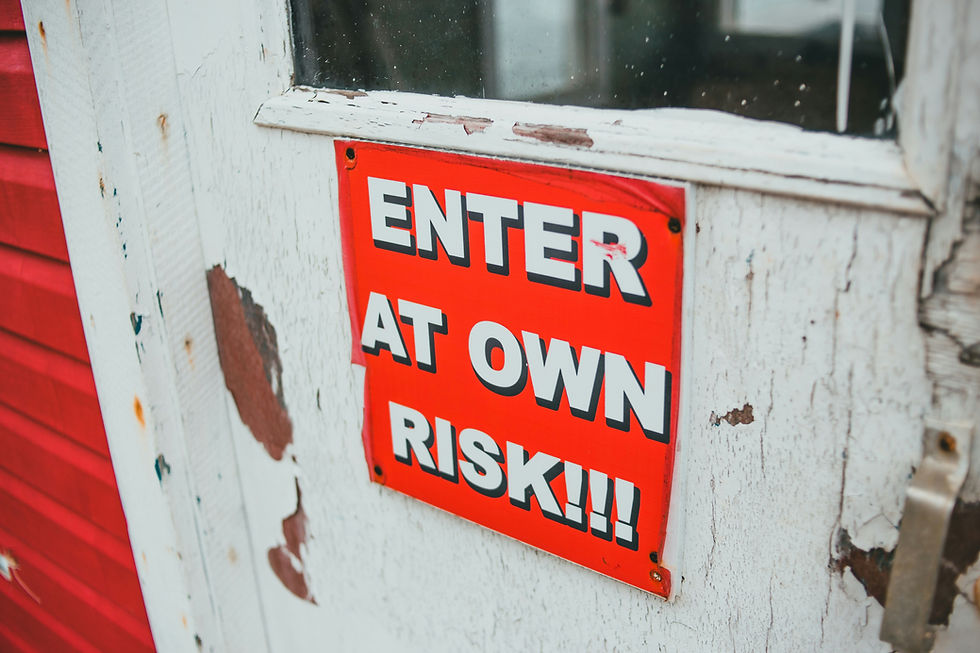A Sigh of Relief You Didn’t Know You Could Breathe
- Nadine Wismayer

- Dec 3, 2024
- 3 min read

Most people have a general awareness that you can’t typically just wait forever before taking some kind of legal action against another person or company.
However, the specifics and complexities of that proposition probably aren’t that well known by most.
So, it comes as something of a surprise to many people that Queensland has allowed a baffling nightmare scenario to persist for many years and is only just getting around to fixing it.
The Nightmare Scenario
Let’s say you had a commercial deal with someone. Perhaps you were building something or delivering some widgets.
The deal was governed by a “Deed of Agreement”, within which were a series of miscellaneous clauses that you didn’t read including that the document was “executed as a deed”.
You do the work, get paid, and move on with your life.
About 7 years later you destroy all your associated records, because neither Tax nor Corporations laws require you to keep documents past 7 years.
And then, 11 years and 350 days after you concluded that particular job… you get sued by the other party for defective work.
“Surely not?” is the reaction of basically everybody.
“Surely it isn’t fair for someone to sue me so long after the fact, and well after all the relevant staff have moved on and my records are all destroyed?”
Unfortunately this can, and does, happen.
Deeds Are Special… In a Bad Way
To the vast majority of people there is no functional difference between an “Agreement” and a “Deed”.
And so, when presented with a document, most people don’t enquire – they just sign.
However, our story above sets out one of the long standing features of a Deed in Queensland – a different limitation period for commencing a Court proceeding.
In simple terms it works like this:
1. You can sue for a breach of contract (or agreement) up to 6 years after the relevant breach occurred.
2. You can sue for a breach of a deed up to 12 years after the relevant breach occurred.
Yep – 12 years.
But Help is On the Way
Thankfully, as we mentioned in our summary of the upcoming Property Law Act 2023 some simple but important amendments are being made to correct this fairly drastic loophole.
The new legislation is going to amend the Limitation of Actions Act so that Deeds are now treated the same way as contracts – that is, you have 6 years to sue on a breach of a deed.
Watch the Transition Though!
Just bear in mind if you’re a business person that these changes only apply to Deeds made after the commencement of the new Act, which is 1 August 2025.
So for any Deeds that you might have signed to that point, they will still have the longer 12 year limitation/risk period to keep an eye on.
Practical Tips if Signing Deeds
So until 1 August 2025, if you’re presented with a commercial agreement in the form of a Deed, and you’re inclined to sign it, here are a couple of risks you can manage along the way:
1. Keep your paperwork for longer that necessary – destroying your records in a timely fashion can be a time and space saver, but in this case could come back to haunt you. Keep your records for a full 12 years at least;
2. Document discussions carefully – 12 years is a long time, and memories will definitely fade over that time. If there are issues along the way during a project resolved by discussion, document them either by some kind of file note (just email yourself) or an exchange with the other party to the Deed. This way you don’t have to rely on remembering something a decade later;
3. Watch your insurance – if the deal in question carries a degree of risk, consider ensuring that your insurance policy covers the risks for the entire 12 year period. If in doubt, discuss with your broker and ensure you’re covered as much as you need to be.
Of course these are good ideas just across the board no matter what kind of document you’re signing, but especially important if your legal risks carry on so long after the job is done and dusted.
Need a Deed or an Agreement reviewed? Get in touch and we’ll be happy to help!





Comments